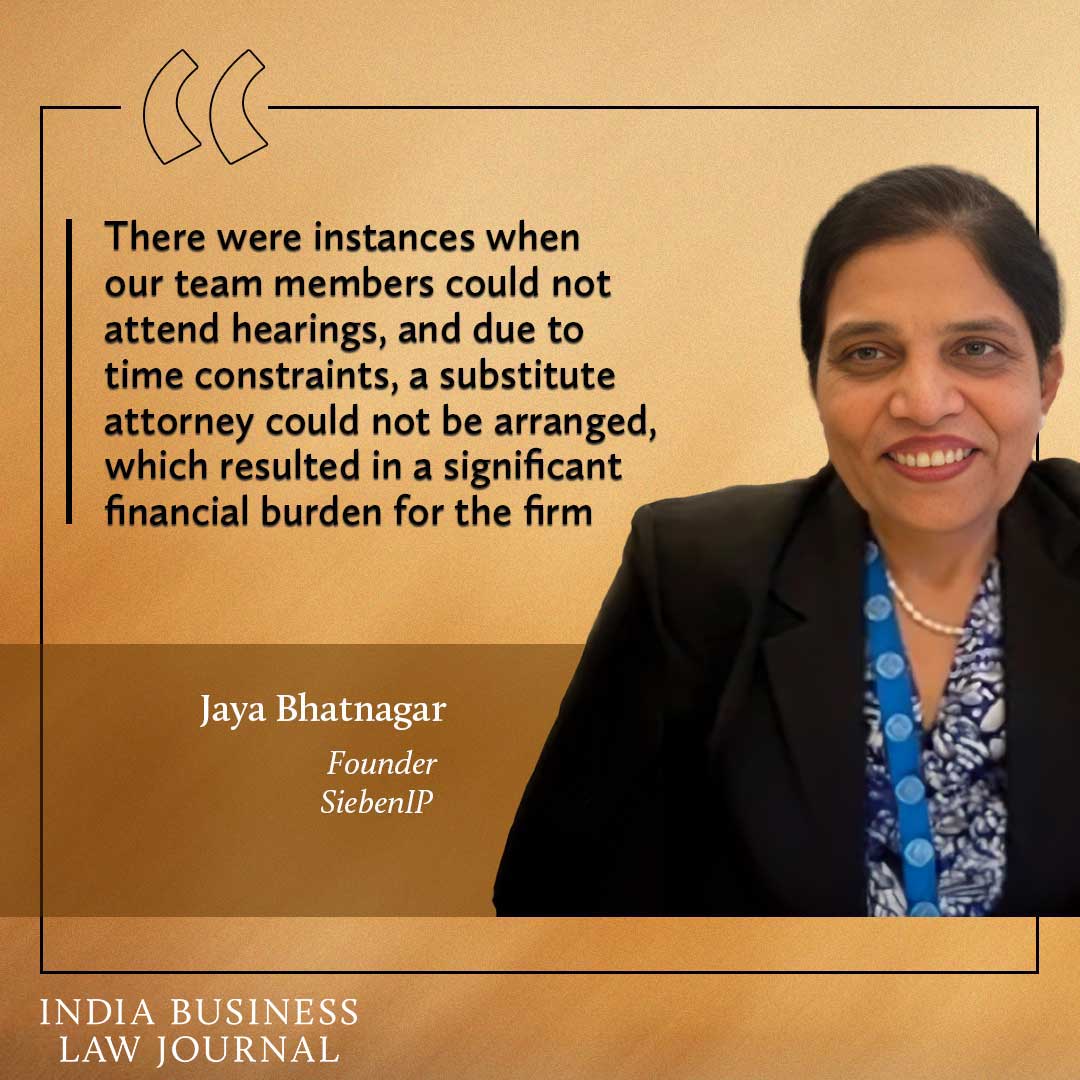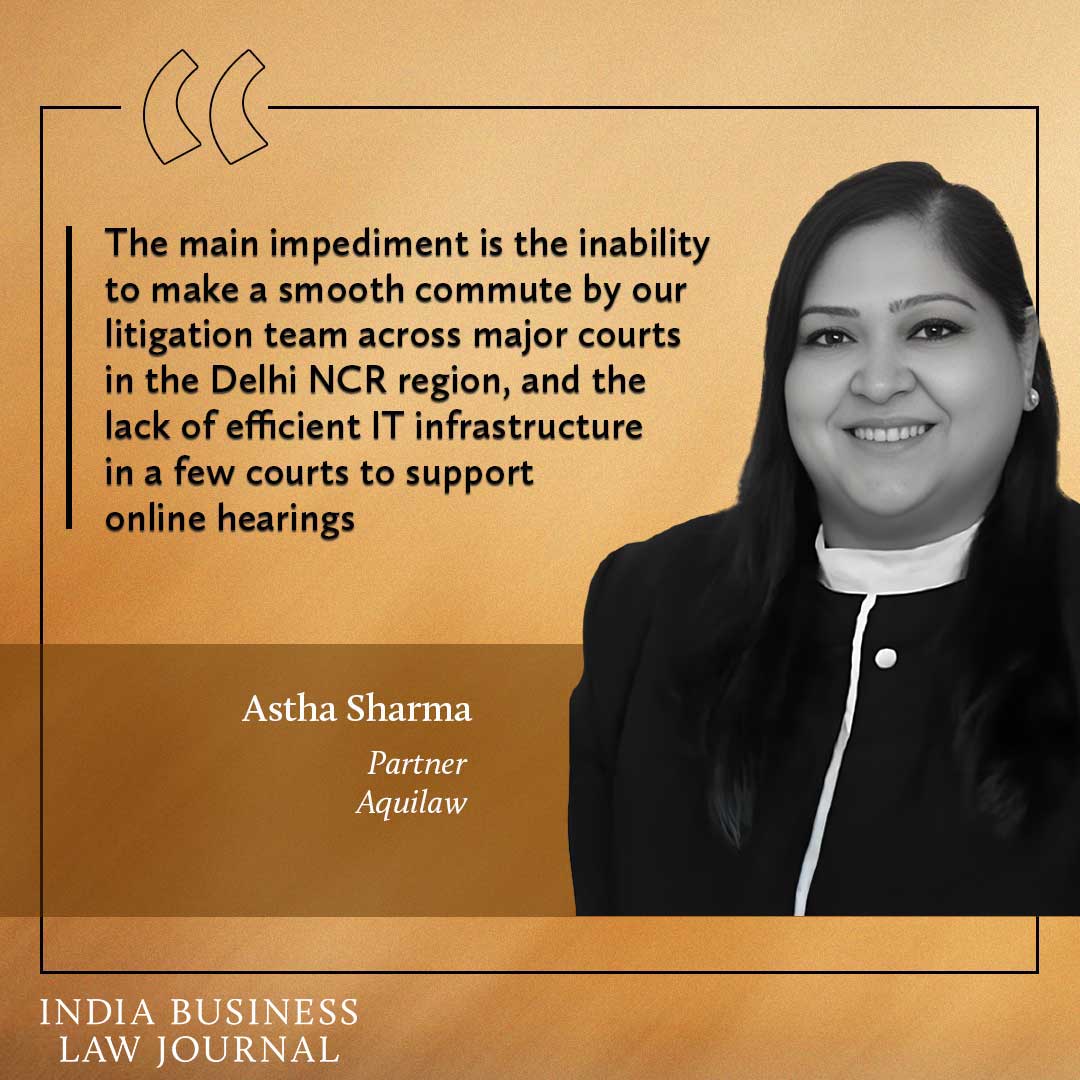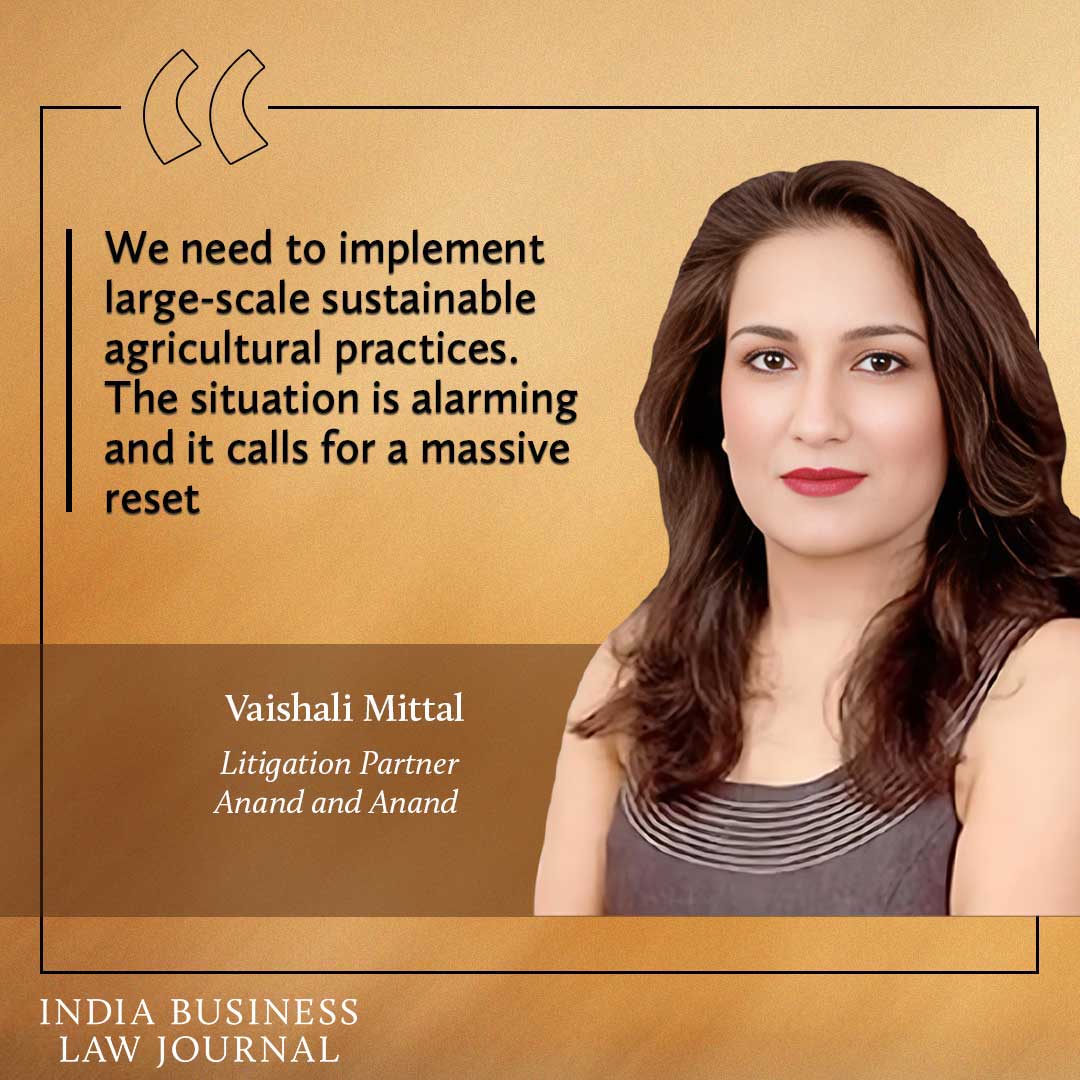Delhi’s ongoing extreme levels of air pollution are having a deadly and costly effect, and knowledge workers such as lawyers and advocates are not immune, writes Aditya Rangroo
In recent years, Delhi has been grappling with a serious and sometimes hazardous level of air pollution.
The period from October to February usually sees the worst of it, with the air quality index (AQI) exceeding an average of 200 micrograms per cubic metre most days (rated “poor”), frequently going above 300 (“severe”) and, on the worst days, especially during November and December, soaring over 400 (“hazardous”). At midday on 18 November 2024, the AQI reached 828.
Toxic atmosphere
Delhi’s air pollution has become a perennial problem, with the numerous causes including traffic pollution, pollution from industry and coal-based thermal power plants, and the winter-time burning of crop residues in the neighbouring states of Punjab and Haryana.
The entire city suffers with this constant exposure to poor air affecting the working environment for millions, according to Himavat Chaudhuri, chief legal and regulatory affairs officer at Tata Play.
“People want to stay outdoors less, and if they are compelled to do so, they are concerned about the damage that this is going to do to their health,” he tells India Business Law Journal.
Nawneet Vibhaw, founder of Panchtattva Advocates in New Delhi, feels that this situation reflects the collective failure of citizens, industries, regulators, government and even the judiciary in tackling an issue which has been troubling the citizens of Delhi for years.
Vibhaw is of the opinion that everyone living in Delhi NCR has resigned themselves to their fate pretty much. “As lawyers, we have gotten used to this annual menace. Earlier, most people would wear masks. Shockingly, unlike the covid times, many people don’t even wear masks these days despite the poor air quality,” he says.
Air pollution this severe is known to have dire consequences on human health, increasing in the number of patients admitted to hospitals with respiratory diseases, cardiovascular problems and itchy eyes.
A doctor at Fortis Hospital in Noida says that in November there was a spike of about 50% in the number of outpatient department visits and admissions compared to previous months. Most of these patients suffered respiratory illnesses, including symptoms of bronchitis and breathlessness, all mainly attributed to the toxic level of air pollution.
Alarm bells have been sounded too by the International Agency for Research on Cancer (IARC) of the World Health Organisation (WHO), which classifies air pollution as a class 1 carcinogen.

Jaya Bhatnagar, founder of SiebenIP in Delhi, says that many vehicles were banned from operating in the city due to the enforcement of stage IV of the Graded Response Action Plan (GRAP), making commuting to work difficult.
She says that, as intellectual property law practitioners, there is a requirement to attend virtual hearings. “The Indian Patent Office has strict rules for attending hearings; for instance, a request for adjournment must be filed three days before the hearing date with a substantial official fee. There were instances when our team members could not attend hearings, and due to time constraints, a substitute attorney could not be arranged, which resulted in a significant financial burden for the firm,” says Bhatnagar.
Likewise, Astha Sharma, a partner at Aquilaw in New Delhi, says that the annually recurring event of air pollution has negatively impacted her firm’s litigation practice, which otherwise thrives across several courts in the Delhi NCR region.

“The main impediment is the inability to make a smooth commute by our litigation team across major courts in the Delhi NCR region and the lack of efficient IT infrastructure in a few courts to support online hearings,” she says.
Virtually there
Even office workers have been affected, with the poor air quality compelling many professionals in the city to carry out duties virtually, avoiding face-to-face meetings as much as they can. Lawyers are no exception, with Reena Asthana Khair, a senior partner at Kochhar and Co in New Delhi, explaining that her firm has largely transitioned to virtual hearings in place of physical ones. Many lawyers have also chosen to work from home to minimise outdoor exposure. Despite these efforts, some lawyers from the firm have still fallen ill.
She says the pollution has had wider implications, too, especially when it comes to the firm’s international clients. “This has left a very unfavourable impression of the city. In fact, many clients have expressed concern for our well-being.”
With the rising air pollution levels in the city taking a toll on Delhiites, in November the Delhi environment minister announced that the government would implement work from home measures for government officers, with 50% of employees doing so.
Astha Sharma, a partner at Aquilaw in New Delhi, explains how her firm consciously made efforts to reduce face-to-face interactions with clients, prioritising health by maintaining client relationships with regular video calls and circulating case updates by e-mail, phone, WhatsApp, LinkedIn, etc.
Rajiv Malik, in charge of legal affairs management at LG Electronics in Noida, says air pollution has impacted his company’s legal operations, particularly meetings and negotiations. To address this they, too, have increased reliance on virtual meetings.
Curbs and filters
The ongoing poor AQI saw the temporary activation in November of stage IV of the GRAP, its most stringent measure to tackle the toxic pollution. This entails a ban on the entry of trucks, excluding those delivering essential items or those using alternative fuels like LNG, CNG, low-emission BS-VI diesel, or those that are electric powered. Non-essential light commercial vehicles from outside Delhi are also banned unless they run on CNG, BS-VI diesel or electricity. Additionally, construction work at public projects was stopped.
The legal fraternity have also taken measures to deal with the menace. MN Nasser Kabir, group general counsel at TV Today Network in Noida, highlights how his company installed an advanced air purification system that significantly reduces AQI levels in office spaces. Additionally, air purifiers are placed throughout the premises.
Himavat says that Tata Play implemented a flexible work-from-home policy and also installed air purifiers in the office.
In addition, Kabir points out his company’s support of larger-scale mitigation measures. “Through our CSR initiatives, such as tree plantations along the Shahdara-Noida drainage system, we actively contribute to mitigating outdoor pollution,” he says.
Other approaches to combat the worsening air pollution have been suggested. Last month, the Delhi environment minister Gopal Rai urged the central government to grant approval to carry out cloud-seeding to encourage rain to bring down pollution levels.

Vaishali Mittal, a litigation partner at Anand and Anand in Noida, suggests that more people should switch to carpooling. “We must also rethink our policies when it comes to the farming sector,” he says. “We need to implement large-scale sustainable agricultural practices. The situation is alarming and it calls for a massive reset.”
At the company level, Vaishali notes that effective leadership is key. “We have to ensure that overall operations of the firm are not affected. This requires us to plan ahead and ensure that even if one member of a team is under the weather, there is somebody else taking charge. This, of course, means other members taking on more than their share of work and putting in extra hours.”
Mittal points out how the authorities are taking steps: “The Supreme Court of India is doing its bit to ensure effective implementation of restrictions under GRAP, which includes a ban on construction, check on movement of heavy vehicles, etc. The state and its agencies have also swung into action.”
Bhatnagar expresses her disappointment with how the government has dealt with poor AQI. She feels that the Indian legal framework – namely, the Environmental Protection Act, 1986; the Air (Prevention and Control of Pollution) Act, 1961; the National Green Tribunal; and the Constitution of India (Right to Life) – face challenges due to policy gaps.
“The recent high levels of air pollution in Delhi have reduced life expectancy in the city by 7.8 years. This is due to a combination of factors including vehicular emissions and inadequate government action,” she says.
Other sources suggest the harm may be still greater, with a recent study by the University of Chicago’s Energy Policy Institute (EPIC) suggesting that people living in Delhi are anticipated to see their life expectancy drop by 11.9 years, compared to a similar population living in a city meeting acceptable WHO air quality standards.
Plotting a cleaner course
The effects of Delhi’s ongoing pollution crisis are felt far beyond the immediate health concerns. The legal profession, integral to the functioning of society, is being forced to adapt to a new reality where outdoor exposure is a threat, and virtual hearings have become a necessary alternative.
The worsening air pollution has seen many corporates take measures of their own to ensure the health of employees. Companies such as KPMG, Deloitte, Panasonic, Coca-Cola, PepsiCo and Acer have deployed air purifiers and indoor plants to help protect employees from toxic air, as well as encouraging work from home.
Arjit Benjamin, an associate partner at Prosoll Law in New Delhi, says his firm has also equipped offices with high-quality air purifiers and indoor plants, but this doesn’t necessarily convince everyone.
“The hazardous AQI levels have certainly influenced how we interact with clients,” he says. “One of our clients rescheduled their visit to Delhi owing to concerns and feedback from his colleagues who were present here to attend an event. There have been some instances in recent times where planned visits to Delhi by other legal professionals from abroad were either postponed or cancelled due to fears about the air quality.”
Dinesh Jotwani, co-managing partner of Jotwani Associates in New Delhi, says that the persistent pollution has led to numerous adjournments and disruptions in court proceedings, adding to the existing backlog of cases. “In some cases, the severe pollution levels have forced courts to suspend hearings or reduce working hours, further exacerbating delays,” he says.
Benjamin outlines anti-air pollution measures include expanding green cover, investing in clean energy, enforcing stricter emissions regulations, and improving public transportation infrastructure.
“There is also a need for stronger public awareness campaigns to encourage environmentally responsible behaviour among citizens,” he adds. “Pollution is not an issue that can be resolved overnight, but with sustained efforts and collaboration between government, industry and residents, it is possible to bring about meaningful change.”
Integrating sustainable practices in agriculture, improving transportation policies, and investing in clean technologies are essential steps to ensure the future well-being of Delhi’s citizens in general, and the legal community in particular. Without these measures, the city will continue to struggle with the pervasive and hugely damaging effects of pollution.
from Asian Products Showcase – Techyrack Hub https://ift.tt/i5oYxGv
via IFTTT


No comments:
Post a Comment